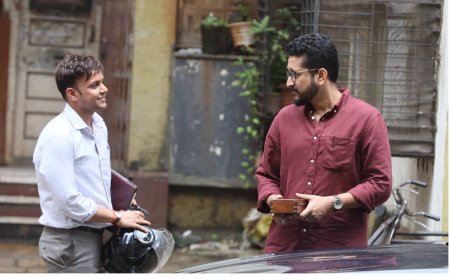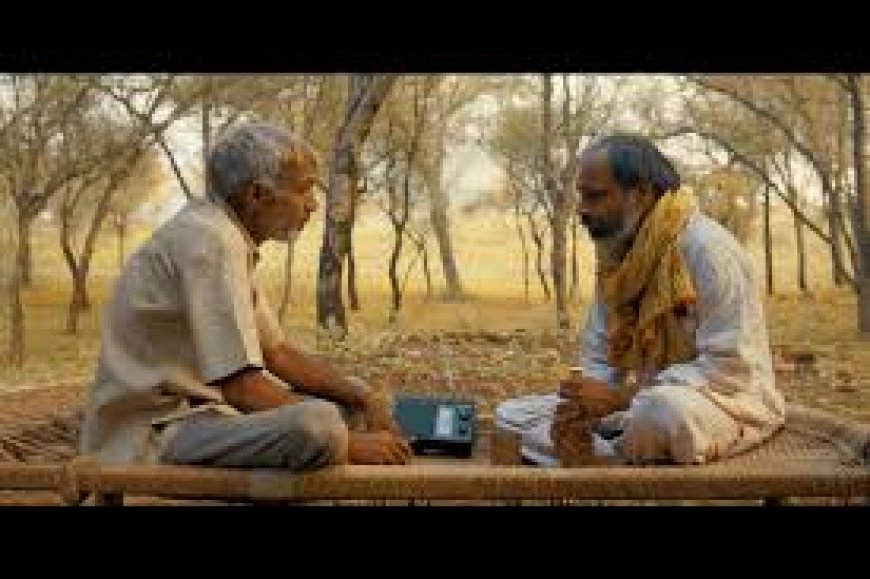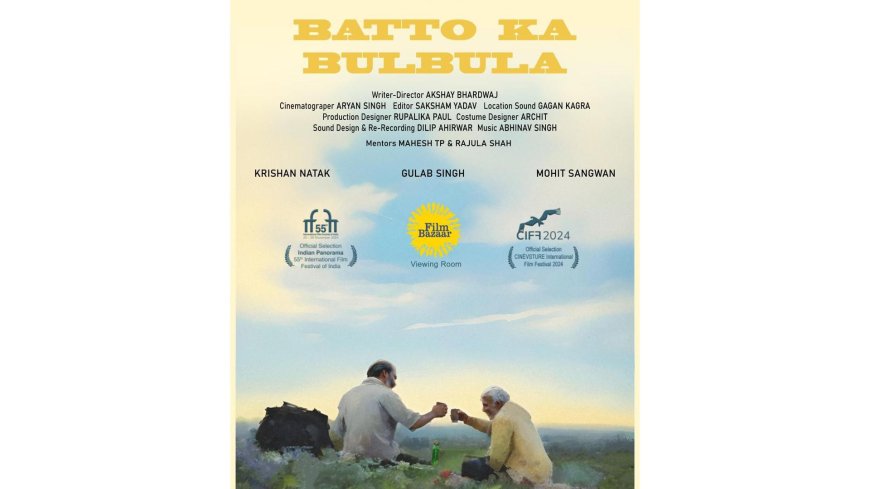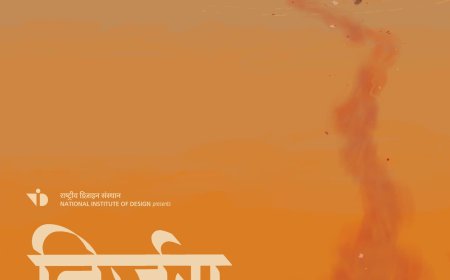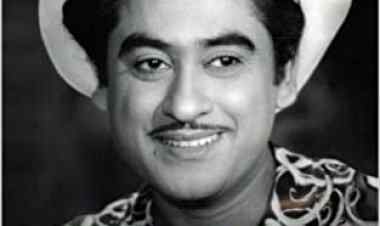Interview: Akshay Bharadwaj
Dipankar Sarkar provides an interview with Akshay Bharadwaj on his short film Batto Ka Bulbula (2024)
In Akshay Bharadwaj’s short film Batto Ka Bulbula (2024), we meet two friends, Batto and Sultan, who spend their days drinking alcohol and enjoying a carefree life, free from the responsibilities of family. Batto’s adopted son, Bittu, however, harbors an ulterior motive—he aims to inherit his father’s property and is willing to go to any lengths to achieve his goal. Bharadwaj treats the film with sensitivity, capturing the loneliness of two aging friends who have outlived everyone around them.
In this interview, Bharadwaj, an alumnus of the Faculty of Film and Television (DLCSupva) in Rohtak, discusses his inspiration behind shaping the characters, his technical choices, and the themes that influenced the narrative.
What inspired you to make the short film?
I always felt fortunate during my film school days to be surrounded by trustworthy and loyal friends—until the closest one left me. In that time of disgrace, while questioning my existence, I began writing about it. I knew I had a strong theme of trust and loyalty, and I had a few dear friends with whom I was constantly discussing it. The elderly widower, Batto, is inspired by a man from my village—a fun-loving, carefree individual who enjoys indulging in alcohol. I decided to give him all my inner conflicts but also the gift of a genuine friend.
Why did you decide to portray Sultan as a lower caste?
Since the story of the film is set in a small village in Haryana, I wanted to highlight the dynamics of village life. Sultan belongs to a lower caste, but he never feels this way around Batto. In contrast, the rest of the village mistreats him, which only makes their friendship more poetic. To me, this is what true friendship is all about—transcending societal barriers and finding genuine connection.
There are two scenes in the movie in which Bittu is depicted in an unusual way—first, when he exhales a stream of air from his mouth, and second, when he is smoking hookah alone at night. Why?
The stream of air from his mouth symbolizes a gesture of taking control. When I was a kid, I heard my mother use the phrase "saas mar dena," which means wishing someone bad luck. I was fascinated by this concept, and while discussing it with my DOP, Aryan Singh, we developed this surreal visual treatment. In another instance, the stream of air returns to Bittu, symbolizing how his plan backfires on him.
Towards the end, Bittu has an unpleasant experience with a shopkeeper. What was the purpose of that scene?
The shopkeeper is the same person who bumped into Batto and Sultan in the first scene. The purpose of that initial interaction was to offer a glimpse of the relationship between Batto and Bittu from a villager's perspective. In the second half, Bittu is pretending to be a devoted son and family to Batto, but in reality, Batto is just his uncle—someone who never liked him. Through this scene, I wanted to confront Bittu with the truth, breaking his façade of pretense. I used the shopkeeper as a catalyst to trigger this moment of realization.
What is the significance of ending the film with the song ‘Pani Da Bulbula’?
The song ‘Pain da Bulbula’ by Yaqoob Atif Bulbula has been on my playlist for the past eight years. The lyrics highlight how to live life and not take life very seriously because everything eventually passes with time. The tone of the song perfectly ends with the film's message. I had put the song in the first draft because I already knew from day one that this one had a place in this film.
Batto Ka Bulbula has been selected for the prestigious Indian Panorama section at IFFI 2024. How does this recognition feel?
IFFI is a great platform for a new filmmaker like me. Festivals like this help regional filmmakers connect with audiences and share their work. My film is in Haryanvi, and I’ve often been disappointed by how the language is portrayed in cinema. But with the support of festivals like IFFI, we can truly showcase our language and culture to the world.
*****
What's Your Reaction?







